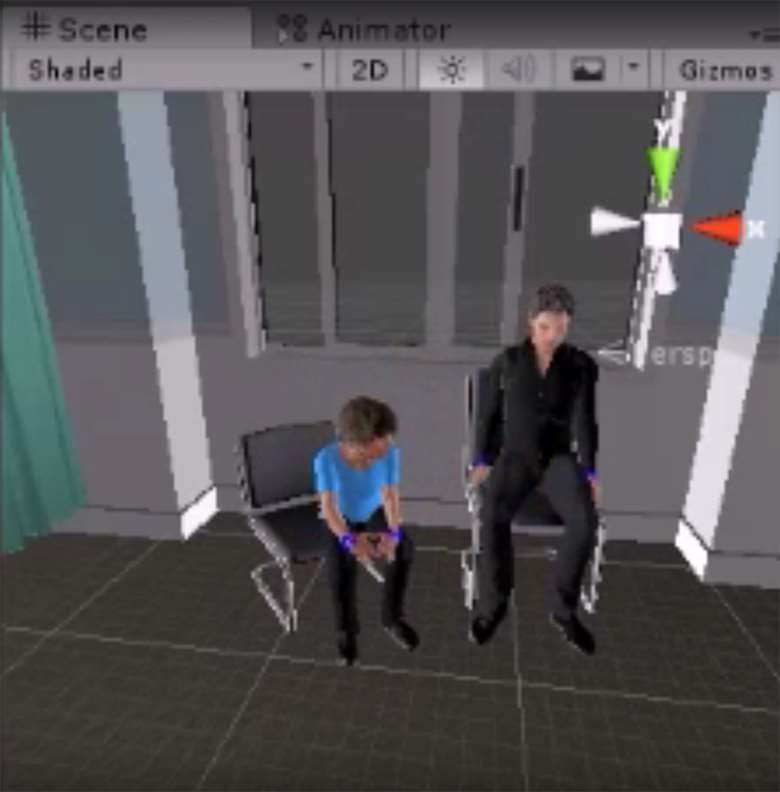Virtual reality 'helps professionals spot signs of child abuse'
Tristan Donovan
Monday, July 2, 2018
Training professionals with virtual reality technology can help them to be better at spotting signs of child abuse, academics have found.

A three-year study by University College London and Goldsmiths examined the potential for using a virtual reality simulation of an encounter with a child and parent to train professionals to spot subtle signs of potential abuse that are hard to teach in a classroom-type environment.
The virtual reality simulation used in the study recreated an encounter with a parent with a complex medical condition and their young child, both of whom were recreated using video game-style computer graphics based on the motions of real actors. The visual cues and dialogue were adjusted to make the signs of abuse more overt, or subtle.
The researchers asked 64 general practitioners to experience the simulation while wearing virtual reality headsets and then write up their notes, which the researchers then analysed to see how well they picked up on the signs of potential abuse.
The aim of the study was to determine whether a GP's experience and personality affected their ability to spot signs of child abuse. The researchers found that experienced GPs were no more likely to spot the more subtle warning signs of abuse in the simulation than their more junior counterparts. It also found that GPs that were "less neurotic" and "more extrovert" were most likely to flag up their concerns.
They concluded that similar virtual reality simulations have "considerable potential" as a tool for training professionals to spot abuse, especially as using real-life child actors in role-plays about spotting abuse is problematic.
Dr Caroline Fertlman, the study's medical lead and a paediatrician with child safeguarding expertise, said: "For ethical reasons it would be impossible to recreate this kind of sensitive scenario using child actors. What we have shown, for the first time, is that we can create virtual reality characters of abused children and their parents that doctors believe in and interact with in a realistic way, enabling them to learn how to spot the subtle warning signs of abuse."
"An advantage of our approach is that, unlike with actors, we have absolute control over our virtual characters," added Dr Sylvia Xueni Pan, who led on the study's virtual reality work.
"This means we can subtly alter the behaviour and responses of these virtual patients. Our results show that medical doctors responded to this, as those given less obvious behavioural cues were not as effective as those given more obvious cues."
The study, published in the journal Frontiers in Robotics and AI, also found that GPs who were less stressed and more extroverted tend to be better at raising child protection concerns in their notes.
Law and ethics professor Sylvie Delacroix, who was also involved in running the study, said this was an important finding.
"Our results show that GPs who are less stressed, less neurotic, more agreeable and extroverted tend to be better at raising potential child abuse issues in their notes. These results not only indicate the considerable potential of virtual reality as a training tool - they also highlight fruitful avenues for further research and potential strategies to support GPs in their dealing with highly sensitive, emotionally charged situations."




